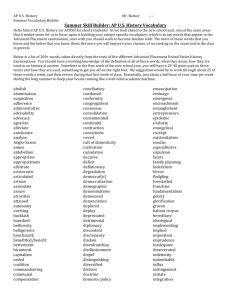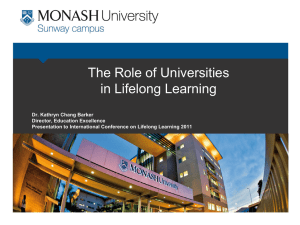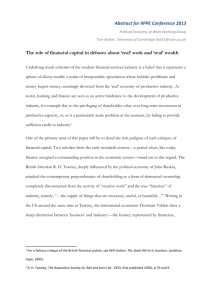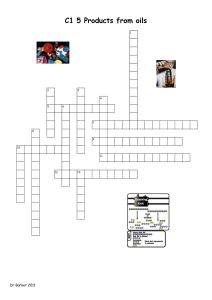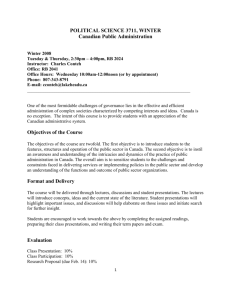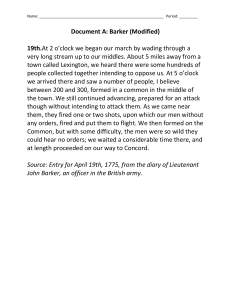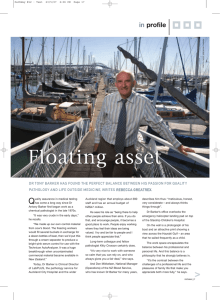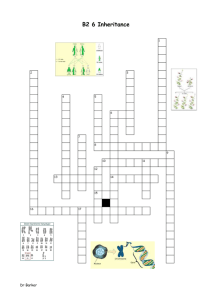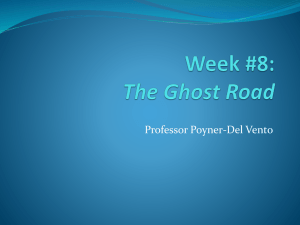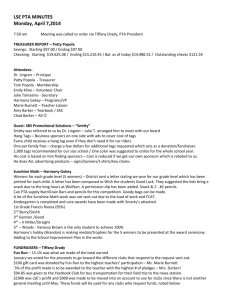Introduction to Cultural Studies
advertisement
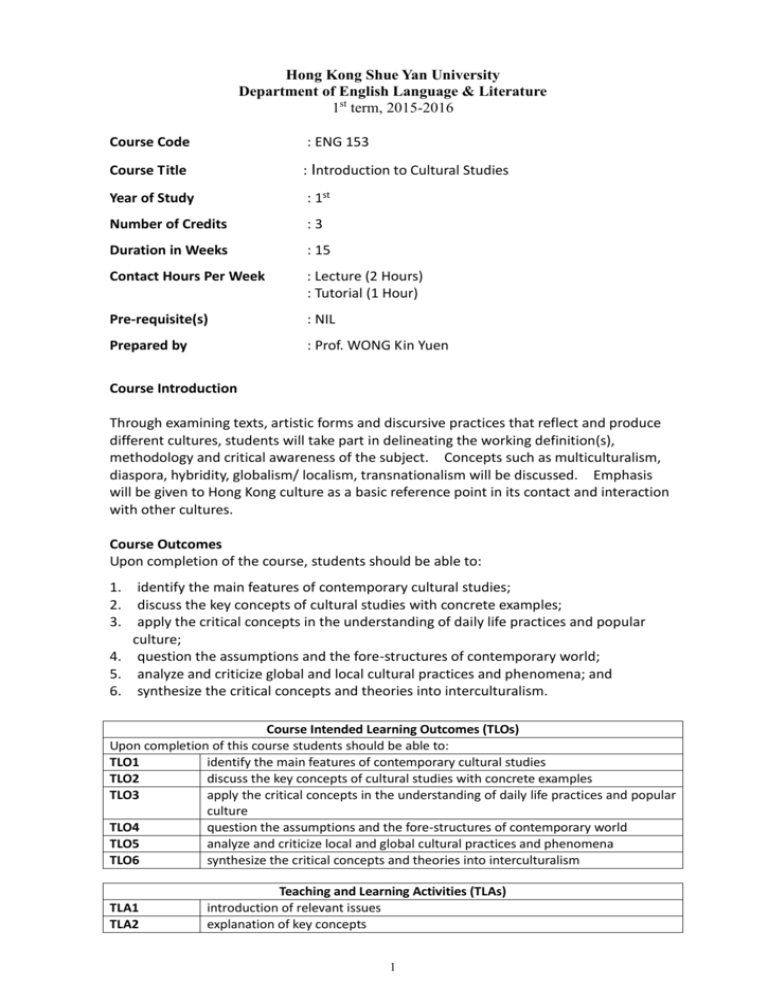
Hong Kong Shue Yan University Department of English Language & Literature 1st term, 2015-2016 Course Code : ENG 153 Course Title : Introduction to Cultural Studies Year of Study : 1st Number of Credits :3 Duration in Weeks : 15 Contact Hours Per Week : Lecture (2 Hours) : Tutorial (1 Hour) Pre-requisite(s) : NIL Prepared by : Prof. WONG Kin Yuen Course Introduction Through examining texts, artistic forms and discursive practices that reflect and produce different cultures, students will take part in delineating the working definition(s), methodology and critical awareness of the subject. Concepts such as multiculturalism, diaspora, hybridity, globalism/ localism, transnationalism will be discussed. Emphasis will be given to Hong Kong culture as a basic reference point in its contact and interaction with other cultures. Course Outcomes Upon completion of the course, students should be able to: 1. 2. 3. identify the main features of contemporary cultural studies; discuss the key concepts of cultural studies with concrete examples; apply the critical concepts in the understanding of daily life practices and popular culture; 4. question the assumptions and the fore-structures of contemporary world; 5. analyze and criticize global and local cultural practices and phenomena; and 6. synthesize the critical concepts and theories into interculturalism. Course Intended Learning Outcomes (TLOs) Upon completion of this course students should be able to: TLO1 identify the main features of contemporary cultural studies TLO2 discuss the key concepts of cultural studies with concrete examples TLO3 apply the critical concepts in the understanding of daily life practices and popular culture TLO4 question the assumptions and the fore-structures of contemporary world TLO5 analyze and criticize local and global cultural practices and phenomena TLO6 synthesize the critical concepts and theories into interculturalism TLA1 TLA2 Teaching and Learning Activities (TLAs) introduction of relevant issues explanation of key concepts 1 TLA3 TLA7 TLA8 TLA9 illustration of critical concepts and issues with local and global examples and cultural texts analysis of local and global cultural practices and phenomena critical reading of cultural texts with relation to the key concepts demonstration of how to construct a paradigm of interculturalism through syntheisizing critical concepts and theories in-class discussions oral presentations by students writing of term paper AT1 AT2 AT3 Assessment Tasks (ATs) Class Participation and Tutorial Presentation Term Paper Final Examination TLA4 TLA5 TLA6 25% 35% 40% TOTAL 100% Alignment of Course Intended Learning Outcomes, Teaching and Learning Activities and Assessment Tasks Course Intended Learning Teaching and Learning Assessment Tasks Outcomes Activities TLO1 TLA1,2,7,8 AT1,2 TLO2 TLA2,3,4,7,8 AT1,2 TLO3 TLA2,4,5,8,9 AT2,3 TLO4 TLA2,3,4,5,8,9 AT1,2 TLO5 TLA2,3,4,5,8,9 AT1,2,3 TLO6 TLA2,5,6,9 AT1,2,3 Course Outline: 1. Introduction What does it mean by “culture”? How do we define “culture” in this course? The purview of “cultural studies” 2. Basic Issues in Cultural Studies: Class, Gender, Race and Machine Reading assignment: Barker, pp. 7-25 3. Issues of representation, subject and identity, discourse and power Reading assignment: Barker, pp. 25-38 4. Sex, Gender and Representation Reading assignment: Barker, pp.23-25; 280-296; 325-326 5. Postmodernity and Postmodernism Reading assignment: Barker, pp. 18-22; 177-183; 188-212 6. Globalization, Glocalism: “To think global and act local.” Reading assignment: Barker, pp. 155-164; 175-176; 332-336; 338-343 7. Cultural Consumption and Consumer’s Society Reading assignment: Barker, pp. 142-146; 152-155; 343-345 2 8. Cultural Space and Hong Kong Urbanscape Reading assignment: Barker, pp. 373-384; 391-405 9. Urbanspace: Theme Park and Tourism Reading assignment: Barker, pp. 390-405; readings on shopping malls 10. Media Culture Reading assignment: Barker, pp. 315-331 11. Media culture continues Reading assignment: Barker, pp. 333-345 12. Sports Culture Reading assignment: Ellis Cashmore, pp. vii – xii 13. Ecology and Environmental Ethics (Green Cultural Studies) Reading assignment: Barker, pp. 111-116; 124-129; 135-138 14. Technoscience Culture Reading assignment: Barker, pp. 346-372 15. Recapitulation Academic Honesty You are expected to do your own work. Dishonesty in fulfilling any assignment undermines the learning process and the integrity of your college degree. Engaging in dishonest or unethical behavior is forbidden and will result in disciplinary action, specifically a failing grade on the assignment with no opportunity for resubmission. A second infraction will result in an F for the course and a report to College officials. Examples of prohibited behavior are: Cheating – an act of deception by which a student misleadingly demonstrates that s/he has mastered information on an academic exercise. Examples include: Copying or allowing another to copy a test, quiz, paper, or project Submitting a paper or major portions of a paper that has been previously submitted for another class without permission of the current instructor Turning in written assignments that are not your own work (including homework) Plagiarism – the act of representing the work of another as one’s own without giving credit. Failing to give credit for ideas and material taken from others Representing another’s artistic or scholarly work as one’s own Fabrication – the intentional use of invented information or the falsification of research or other findings with the intent to deceive To comply with the University’s policy, the term paper has to be submitted to VeriGuide. Required Text: Chris Barker. Cultural Studies: Theory and Practice, 4th edition. London: Sage, 2011. Recommended Text: Andrew Edgar and Peter Sedgwick, ed. Cultural Theory: The Key Concepts. London: Routledge, 2002. 3

